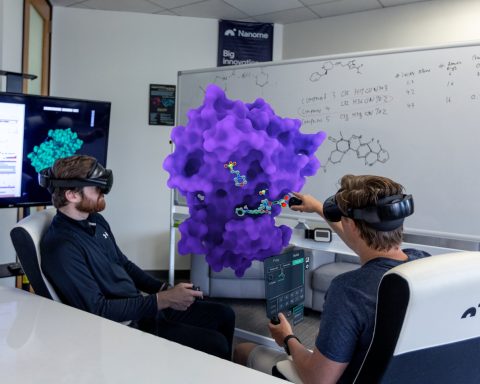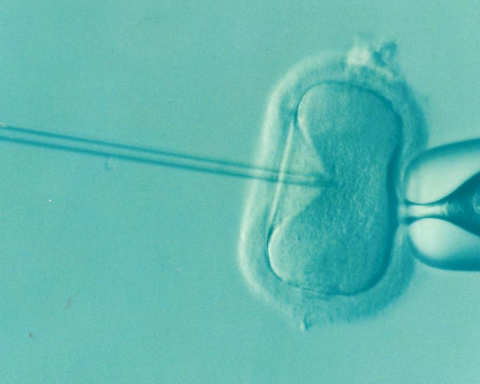Sanner total quality management ensures smooth processes and maximizes product protection in pharmaceutical packaging production.
Materials, machinery and man – these three factors pose the highest risk in pharmaceutical packaging production. This is why pharmaceutical industry suppliers are required to comply with exacting standards when it comes to product safety, hygiene and minimizing risks. Sanner GmbH meets these standards by implementing a quality management system tailored to the specific needs of the pharmaceutical industry. This guarantees smooth production processes, complete traceability and maximum product protection – and minimal risk for patients.
Packaging requirements in the pharmaceutical industry are more stringent and complex than in any other sector. This applies to the packaging itself as well as to the entire production process. A defect in the packaging, such as a malfunctioning child-proof cap, can have dramatic consequences. For this reason, pharmaceutical industry suppliers are obligated to comply with applicable ISO standards and hygiene regulations, and to produce in accordance with “Good Manufacturing Practices” (GMP). Pharmaceutical manufacturers expect suppliers to implement trouble-free processes along with applied risk management to guarantee the consistently high quality of packaging products. Consequently, the complete production process is subject to strict criteria to ensure that defective packaging does not end up in the hands of patients.
Process-oriented manufacturing organization
[wp_ad_camp_4]As a company specializing in the development and production of high-quality plastic packaging and components for pharmaceutical, medical and healthcare products, Sanner uses a specially designed quality management system to meet pharmaceutical industry requirements. The Sanner Excellence System (SESy) defines group-wide standards, methods and procedures. These include continuous production monitoring and regular quality checks, along with complete documentation of all business processes and compliance with ISO standards and GMP guidelines.
Sanner uses the SAP-linked Guardus Manufacturing Execution System (MES) to ensure seamless quality and production control across the entire manufacturing process, from incoming materials to outgoing products. All relevant customer and product data is stored in a database that documents the entire production workflow. This includes all manufacturing steps and measures, such as material receipt, quality checks and administrative processes.
The path to a perfect product
At Sanner, the entire process environment focuses on the product and its manufacturing chain. The advantage lies in the comprehensive organization of all operations, instead of being tied to specific departments. “We consistently focus on the product. All of our work processes are linked to and derived from its production,” explains Volker Reichstein, Head of Quality Management at Sanner.
“This ensures that our products are manufactured to meet the highest quality standards in line with different customer requirements.”The strong product focus along the entire supply chain enables thorough root-cause analysis. During the product development phase, Sanner already pays close attention to potential risks in production. They are quantified and appropriate measures are taken to minimize the risk for patients. This results in a consistent process with the lowest possible error rate and a safe product supplied to the customer.
Complete traceability minimizes risks
Thanks to technical data embedding, the MES system meets the highest standards for end-to-end traceability and production control across the entire supply chain, down to each individual packaging unit. When raw materials are ordered, the ERP system forwards part numbers and supplier information to Guardus MES. “We document all production steps and quality checks in the manufacturing process,” says Reichstein. “This enables us to subsequently determine how each product was manufactured and which raw materials were processed.”
OTIF levels and complaint rate prove that Sanner integrates rigorously controlled and validated processes: 98 percent of all deliveries arrive at their destination on time without any missing parts. The complaint rate is less than one per ten million parts supplied. If, despite stringent quality control, a product defect does occur, Sanner can determine the cause using a predefined complaint management system that covers the entire production cycle. Problems in the system are seen as an opportunity for sustainable improvement. “Our MES system gives us instant access to all of the data. This enables us to immediately respond to requests and actively intervene if necessary,” Reichstein explains. “We carefully analyze the problem and develop a long-term solution.” Michael Kuhs from Analyticon Biotechnologies AG states that “We were impressed by the way Sanner reacted immediately to our complaint. The changes made in the production process now give us even more product safety and quality.”
A defined “change control” process is used to handle modifications in material or other new framework conditions. This solution-oriented approach is a key benefit for customers like HemoCue AB. “We have been working successfully with Sanner for many years,” says Asa Sjöstrand from HemoCue Sweden. “We were especially impressed by the company’s expertise and the service mentality of Sanner specialists. They took our requests seriously and responded immediately with satisfactory solutions.”
Assuring quality, breathing life into processes
To improve processes company-wide on a long-term basis, Sanner uses the “20 Keys” management method. This holistic approach compares and describes a company’s actual and target status based on 20 fields of action, identifies needs for improvement and integrates them into existing workflows. Instead of treating quality management as a static issue, Sanner sees it as a process in constant motion. “We don’t just talk about processes at Sanner, we breathe life into them,” Reichstein concludes. “This is the key to continuously improving quality and supplying customers with reliable products that minimize risk and maximize patient safety. These are the factors that make Sanner an ideal partner for the pharmaceutical industry.”








